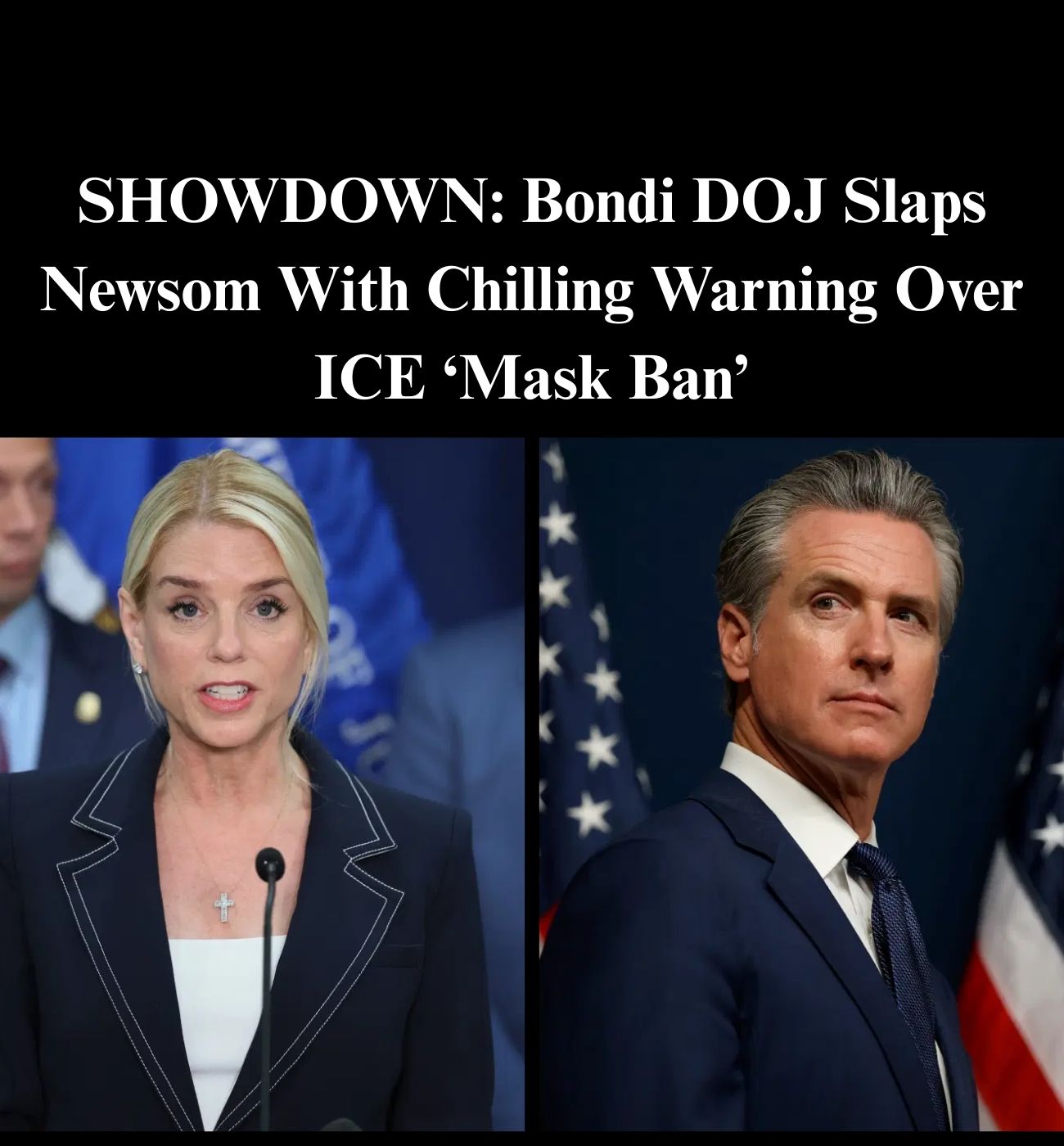A newly signed California law that bans law enforcement officers, including federal agents, from wearing masks during official duties is drawing sharp federal pushback.
U.S. Attorney Bill Essayli is warning state officials that any attempt to enforce the measure against Immigration and Customs Enforcement (ICE) or other federal personnel will face immediate legal consequences.
Governor Gavin Newsom signed the legislation earlier this month, framing it as a transparency measure designed to prevent intimidation and ensure accountability. The statute bars law enforcement in California from covering their faces during operations, except in limited circumstances such as riot-control situations or public health emergencies. Proponents argued that the law would prevent abuse of power and allow citizens to identify officers who engage in misconduct.
But federal officials quickly branded the policy unconstitutional. The Department of Homeland Security (DHS) said last week that the measure conflicts with federal operational standards, particularly for ICE agents who often conceal their identities during raids to protect themselves and their families.
Now Essayli, the U.S. Attorney for the Central District of California, has formally directed federal law enforcement agencies to disregard the state law. In a memo released this week, he said California had “exactly zero authority” to regulate federal officers.
“I have directed federal agencies to disregard this state law and adhere to federal law and agency policies,” Essayli wrote, citing the Supremacy Clause of the U.S. Constitution, which establishes that federal law takes precedence over conflicting state laws.
Essayli went further, warning that any attempt by California officials—or even private individuals—to impede federal law enforcement operations over the mask issue would be referred to his office for prosecution.
“Any state official or private individual that unlawfully interferes or impedes federal law enforcement operations should be referred to my office for prosecution,” he said.
The clash sets up another high-profile standoff between California’s Democratic leadership and the Trump administration, echoing earlier disputes over immigration enforcement. During Trump’s first term, the Justice Department sued California over its “sanctuary state” law, which limited local cooperation with ICE detainers.
Federal courts ultimately upheld much of the state’s approach, but the Supreme Court declined to take the case, leaving unresolved questions about the balance of state versus federal power.
Legal experts note that the new dispute could be even more clear-cut.
“California can regulate its own law enforcement officers, but it cannot dictate how federal agents carry out federal law,” said one constitutional law professor at UCLA. “That’s a textbook example of where the Supremacy Clause applies.”
Supporters of the California measure argue that it is part of a broader push for accountability in policing. Civil liberties advocates contend that masked officers create an atmosphere of fear and can make it impossible for victims of misconduct to seek justice.
“No one is above the law, including federal agents,” said a spokesperson for a coalition of progressive groups backing the law. “Californians deserve to know who is knocking at their door.”
Critics counter that unmasking federal officers would put them in direct danger. ICE officers have reported increasing threats and doxxing attempts by activist groups.
“This is about safety, plain and simple,” one federal law enforcement official said. “Agents have families. If their names and faces are exposed, they are at risk of retaliation.”
Newsom, widely believed to be laying the groundwork for a presidential campaign, has sharpened his criticism of Trump and his administration’s immigration policies. In recent weeks, he accused a top Trump official of behaving like a Nazi SS officer, comments that fueled outrage among conservatives.
The law is scheduled to take effect in January, but lawsuits could be filed before then. The Justice Department has not yet formally sued California, but Essayli’s memo signals that litigation—or even direct federal intervention—could come quickly.
